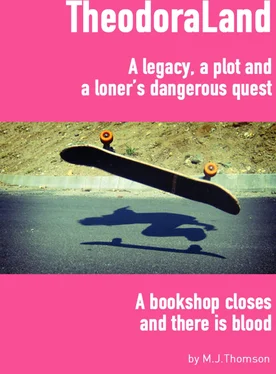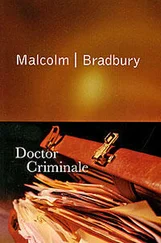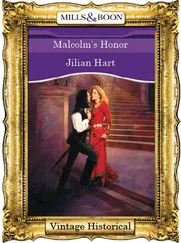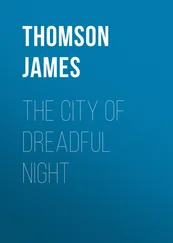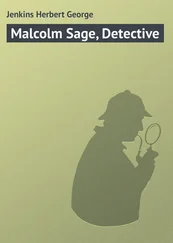My Swiss great-aunt, Ursel, née Ammann, was briefly married to Heinrich Lange, a German bookseller originally from Leipzig who settled in Weinfelden. There was, as they say, no issue.
After the divorce Heinrich then married Ursel’s older sister Erika. My grandmother was never called anything but Omi. My Dad turned out to be an only child, as did I. He was given the middle name Nestor, meaning ‘the traveller’ according to some sources. His first name, Adolf, was pointedly ignored and after a while forgotten.
Omi and Ursel were both of a generation of women not generally known for their independent spirit. However neither had any doubt that they were the equals of men. I cannot recall any stories told about their own father, Herr Ammann, who may have been quite insignificant to them. But there was no doubt that for the sisters it was the maternal lineage which counted. There was a very ancient photo of their mother, a woman with the same shine in her eye as my great-aunt. There was sometimes mention of the wealthy and powerful Eleanor of Aquitaine, the twelfth century successor in the Merovingian bloodline who (and this was significant) married a man nine years her junior.
“Young boys are an important part of my life!” Ursel still announces with a twinkle in a smoky voice. She is in her nineties.
Ursel loves the raised eyebrows her declaration causes. Then with perfect timing she explains that she is, of course, referring to her support of the football team, Young Boys, from the federal capital, Bern. She goes on to point out that the name is no more stupid than that of one of the Zurich clubs, Grasshoppers. If pressed Ursel admits that her true allegiance was to the very successful German club, Borussia Dortmund, whose team colours they shared with Young Boys, yellow and black.
Yellow and black diagonal stripes also decorate the shutters of the big house with a superb view of the Alps. Heinrich Lange had bought Säntisblick before the war. It had been home to Heinrich and his Ursel, then to Heinrich and his Erika, my Omi (although with Ursel still in residence), then to the two sisters on their own and in the end just to Ursel. And, in a way, it was home to me.
Aunt Ursel’s monster high-definition television set (almost always tuned to Sky Sport) was the sole modern touch in the cosy parlour, the Bauernstube, which was otherwise dominated by the traditional tiled stove. Not that Ursel Lange is an inactive stay-at-home football-crazed crone. Far from it. She had a weekly bridge evening with friends who were not all her contemporaries. She was very active in an association which had as its mission the promotion of traditional and ethnic music. Until her eyesight began to fail she enjoyed target shooting and still liked nothing better than to clean her Sig-Sauer and show off by loading it while blindfold, a trick she had insisted on teaching me as well. I was a decent shot, too.
“You never know, child. You never know!”
Her upright gait and leathery complexion speaks of plenty of fresh air, inhaled on long hikes in the hills of the neighbouring cantons, Appenzell and Sankt-Gallen.
Ursula Lange is the only family I have really. I have a very vague recollection of a father who when I was seven vanished to darkest Africa (to Burkina Fasso, Equatorial Kundu, Liberia, the Democratic Republic of the Congo or perhaps in some land even poorer and more benighted) where Dad subsequently did laudable and selfless things out of the goodness of his heart.
“Drunk on do-goodery… reading Plato to Picaninnies,” Ursel once pointed out with typical political incorrectness. Adolf Nestor Lange’s do-goodery had rarely included affection for his daughter, as I recall.
Over the years, although not for the last four or five, there had been an annual calendar which had always taken weeks to get from Africa to Weinfelden. My great-aunt explained that the delay was in part due to the fact that the calendars came to Germany in a parcel from Africa and were then sent on individually by post.
The calendars were nothing special, just a single image with small tear-off pages underneath, one for each month of whatever year. Usually it was a photo documenting some praiseworthy good work, the inauguration of a newly bored well, of a small clinic where there had been never before been any health-care facility, of a schoolroom crowed with shy, eager children.
The calendars had been issued by the Queen Sarah Foundation and in a few of the photos there was my Dad in the middle, flanked by villagers with a new source of clean water in Uganda, by a small group of grim-faced medics very much aware of the massive task before them in Equatorial Kundu or by little kids on their very best behaviour in Rwanda.
Sometimes Dad had almost smiled, but it was always strained.
I had kept one of these annual signs of life, the only one which was not a photo. It was a child’s drawing. She (somehow I intuited that it was a girl) had depicted my father in a way I found preferable to any photographic likeness.
Her drawing was similar to the ones I had made at an age when Dads are always unconditionally loved by their daughters.
We see people not as they are, but as we are. At least for a few years.
My mother was also a strong woman. Ursel had never elaborated on how she and Dad had come to marry. But Christine’s strength was obstinacy. She was self-centred, self-obsessed, just plain selfish. She had hung around until I was eight and installed in a grim German boarding school whose fees were paid by Aunt Ursel. Then Christine Lange buggered off with a wealthy Swiss yachtsman of no fixed abode and a preference for the waters of the Caribbean. Oddly enough I did see my Mum a few years ago. She and her sailor were still together, they were holding hands and answering the questions of the television reporter on their boat moored in the luxury Renaissance Marina on the island of Aruba. I remembered that the waters were deep blue. The reality series had something to do with escapist fantasies. Aruba is a very small island only twenty-seven kilometres north of the coast of Venezuela, a hundred-and-thirty east of Colombia, its Dutch colonial past preserved in the name of its capital, Oranjestad. It could be a great place for getting away from it all.
Christine Lange was a long way from Baden-Baden.
That had been the last city where we had lived in the years when we were what passed for a family. My parents had moved home twice before. I was lonely. I wanted a dog for companionship.
When my mother decamped, our household effects went into storage. It was only when I set up home in Munich that I picked out from the detritus of family life my father’s armchair, his old vinyl records of the pop and rock of the sixties and seventies and that old painting of a dog which had belonged to Heinrich Lange, the painting, not the dog.
The Mighty Quinn.
My dog in Munich which needs neither feeding nor being walked.
The upshot is that Weinfelden still feels something like home, even after my university years and Manduvel apprenticeship, The Mighty Quinn and my loft notwithstanding.
My affection for my great-aunt is not expressed in hugs and kisses, but I think that each of us derives satisfaction from the presence of the other, reassurance that the alpha-matriarchal line (notwithstanding my mother’s deplorable dereliction of duty) remains intact, resilient and eccentric.
We seldom share confidences.
For instance, Ursel has no idea who deflowered me or when. I think she presumed that my loss of innocence coincided more or less with the onset of puberty, maybe because for her this had been the case. Indeed I had planned to cede my virginity (make a Christmas gift of it in fact) to Hans-Peter Danner ten years ago. But it was not to be and my virtue remained unsullied for several years more.
Читать дальше
